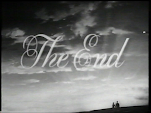
A site that I set up six years ago, but which has been on a long hiatus for the last two, has just relaunched. It is edited by me, and written by myself and an assortment of excellent film critics, most of whom have studied the subject at university, but who also desire a less purely academic outlet for their cinematic musings.
I offer a few extracts from 'The Alternate Takes Approach', an article that offers some thoughts about the ethos and methods of the site...
-
While obviously recognising that both popular film reviewing and academia can serve very valuable functions, Alternate Takes seeks to contribute to this intriguing space that exists somewhere between the two. [...]
A problem for much movie reviewing is the issue of ‘spoliers’. Arguing for the fundamental need to ‘spoil’ aspects of a film in order to discuss it properly, Jonathan Rosenbaum has said, “it’s impossible to function as a critic if one can’t describe anything in a movie or a book in advance. So if I’m expected to write a review of something, am I also expected not to analyze it?” We might say that this speaks to a basic distinction between reviewing and criticism: film reviewers have to assume that their readers haven’t seen the film under discussion, while film critics can assume that they have. To this extent, Alternate Takes practises both reviewing and criticism. [...]
The most obvious way by which we bridge the gap between reviewing and criticism is that we write about new films twice. First there is a short, evaluative piece that ‘spoils’ as little as possible about a film, but still grants a sense of the sorts of pleasures, or otherwise, that it offers; this is a review to read before you see a film. After you return from the cinema, you can read our Alternate Take - a longer, more in-depth critical analysis that discusses whatever the writer found to be most interesting about the movie. [...]
Speaking very broadly, film journalism tends often to write to the taste of its presumed readership. A film fan or movie geek might read, say, Empire, whose focus is skewed towards mainstream pictures, while a self-defined cinephile might read a more ‘high-end’ publication like Sight and Sound or Film Comment for its coverage of arthouse or festival films. Concerned first and foremost with evaluation, both these kinds of writing usually share and encourage assumptions with their readers about what sorts of films are worth discussing. Film studies, on the other hand, while certainly not immune from issues of taste, isn’t nearly so often interested in passing judgment upon a film’s value - at least not overtly. This in turn opens up the option of writing about a film for a multitude of other reasons - what it might tell us about a social issue, for instance, or an industry, or a genre’s history, or a philosophical problem - and thus means that any film can be treated as interesting for reasons other than whether or not it might be up the critic or reader’s alley.
One problem with writing overtly to a particular taste is simply that it can mean that - due to pressures of space - films which lie outside the taste bracket become sidelined. Thus, Empire gives a film like I Am Love (2010) a positive review that nonetheless runs to a mere 107 words, while the usually more loquacious Sight and Sound grants a movie such as No Strings Attached (2011) just two paragraphs (see the April ’11 issue). This, surely, is because both publications assume that their core readership just won’t be interested in reading lengthy pieces on these sorts of movies. [...]
Of course, it would be foolish to claim that any of our critical judgments can ever be free from personal taste (something acknowledged in our scoring system [...]). But it would be equally foolish to deny that there are degrees to which taste dictates the focus and tone of a discourse. Alternate Takes tries to adopt something akin to film studies’ more democratic attitude towards cinema, but without abandoning the evaluative dimension of journalistic film reviewing. The result, hopefully, is an approach that considers any kind of film worthy of detailed discussion, but which assesses that film on its own terms rather than chastising or ignoring it because it isn’t something that it never attempted to be. We may not always be successful in this aim, but it seems an ideal to strive towards.
.

No comments:
Post a Comment